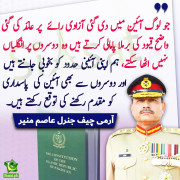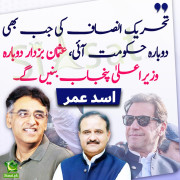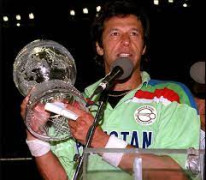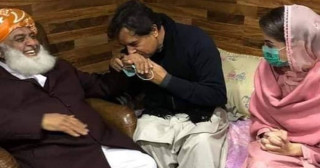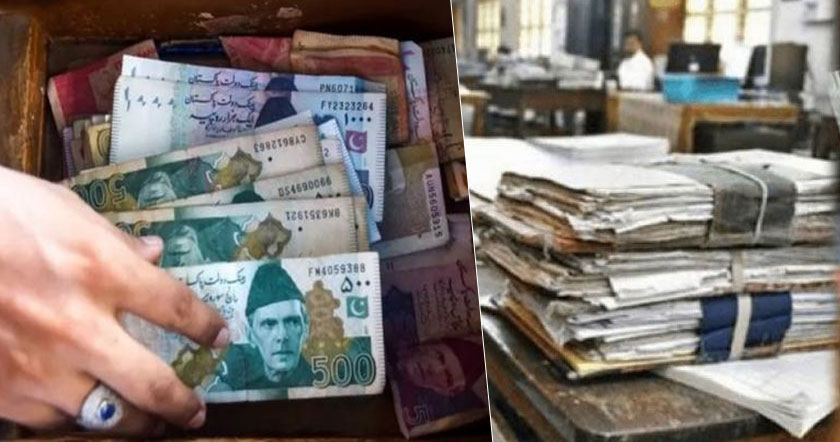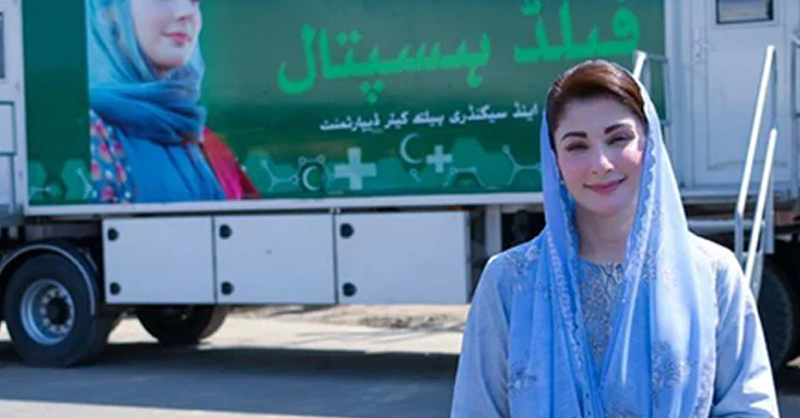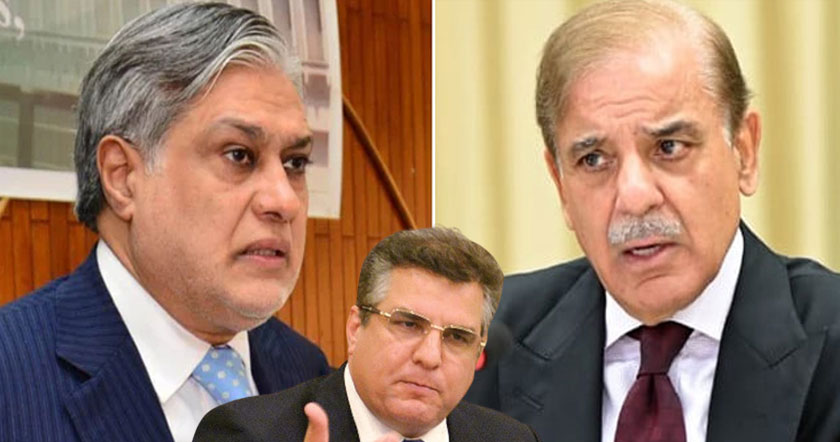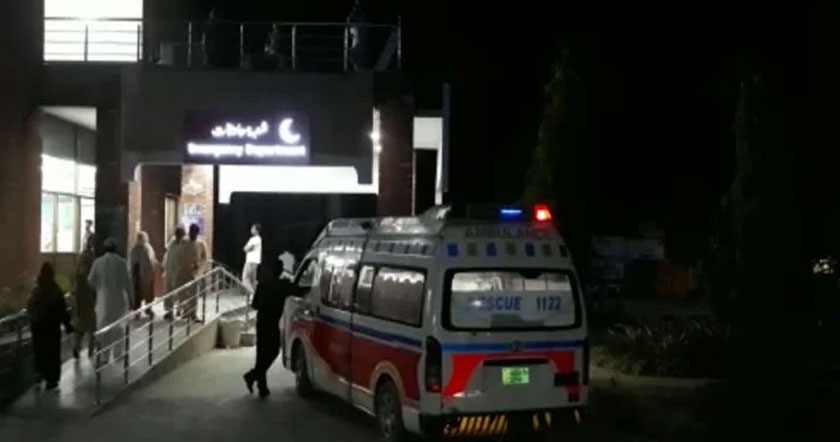Talking to Pakistan
by
Hiranmay Karlekar
The Pioneer Newspaper
Friday, July 2, 2010
 New Delhi
New Delhi
The Government will do well to remember two things in the aftermath of Home Minister P Chidambarams and Foreign Secretary Nirupama Raos visit to Pakistan. First, the military and not the civilian Government that ultimately calls the shots in that country. Second, the Pakistani militarys attitude toward India and not the issue of Kashmir that is the problem. The Pakistani Armys complete domination over the countrys civilian Government was clearly demonstrated in the aftermath of 26/11 when its pressure prevented the head of its Directorate-General of Inter-Services Intelligence, Lt-Gen Ahmed Shuja Pasha, from visiting India. This was despite the fact that Pakistans President and Prime Minister had both agreed to it and Lt-Gen Pasha himself was willing.
In her path-breaking book, Military Inc Inside Pakistans Military Economy, Ayesha Siddiqa writes, Today, the militarys hegemony in Pakistan is a reality. It is important to note that this hegemony is three-dimensional: The military has penetrated the society, politics and the economy. Also, it has grabbed the intellectual discourse and the imagination of the people through promoting its own people or luring others to conform to a classical realist paradigm in analysing domestic or external issues.
The chances of this hegemony ending soon are dim. Pakistans civilian Government is weak and President Asif Ali Zardaris reputation has been undermined by corruption charges. His relationship with the countrys principal Opposition leader, Mr Nawaz Sharif, is uneasy. A long record of political and family rivalry and mutual persecution, make a rapproachement difficult. Besides, the violent campaign of insurgency and terrorism that the Tehrik-e-Taliban Pakistan has launched makes the Government almost totally dependent on the Army for survival. It is, therefore unlikely to make any attempt to clip the militarys wings in the near future and is bound to fail even if it tries to do so.
Nor is the military likely to give up power on its own. Apart from the fact that power is a heady brew that is highly addictive, the vast business empire that it has built up stands in the way. Ayesha Siddiqa states, Pakistans military today runs a huge commercial empire. Although it is not possible to give a definitive value of the militarys internal economy because of the lack of transparency, the estimated worth runs into billions of dollars. Moreover the militarys two business groups the Fauji Foundation and the Army Welfare Trust are the largest business conglomerates in the country. Besides these, there are multiple channels through which the military acquires opportunities to monopolise national resources.
She asks, Why would Pakistans armed forces, or for that matter any military that has developed deep economic stakes, transfer real power to the political class? Hence, India must take into account the Pakistani militarys basic posture toward it. In India A Study in Profile, Lt-Col Javed Hassan, who later became a Lieutenant-General in the Pakistani Army, observed that India was hostage to centrifugal rather than a centripetal tradition. Stating that it had a historical inability to exist as a single unified state, he identified three circles of Indian States. The northern and western States represented its Hindu core. The second circle comprised States that had regional pulls but lacked adequate momentum for secessionism. States belonging to the third circle Punjab, Jammu & Kashmir, Tamil Nadu and the ones in north-eastern India with predominantly tribal population were completely alienated from the Indian mainstream and could, given some encouragement, become spawning grounds of insurgencies that could, at the most, dismember India and, in the least, weaken its ability to achieve regional dominance for years to come.
Lt-Col Hassans observations are most significant because his study was prepared for the Pakistani Armys Faculty of Research and Doctrinal Studies and was distributed by that countrys Services Book Club. Mr Husain Haqqani, a distinguished Pakistani scholar and diplomat who is currently his countrys Ambassador to the United States, cites Lt-Col Hassans study in Pakistan: Between Mosque and Military, and refers in a footnote to the several conversations he had with Lt-Gen Hamid Gul. In these, the latter had referred to an operational plan to encourage the centrifugal forces that existed in India in 1984-87, drawn up when he was the head of ISI between 1987 and 1989.
Mr Haqqani further observes, Pakistans two track policy clandestine operations to weaken India while simultaneously appearing to seek a durable peace remained in operation throughout the period Gen Zia-ul Haq was in power as well as in the subsequent years. This strategy was determined by Pakistan militarys analysis of Indias strengths and weaknesses. In his study, Lt-Col Hassan wrote that India had a poor track record at projection of its power beyond its frontier and its performance in protecting its own freedom and sovereignty was hopeless. This resulted from the weakness of the Hindu character. Lt-Col Hassan writes if one was forced to do it, then the most appropriate, albeit over-simplified summarisation of the key traits of the Hindu would be as presumptuous, persistent and devious.
This portrayal of the Hindu character tended to justify deviousness in dealing with the latter. Also, as Mr Haqqani states, The notion of a Hindu character distinct from a Muslim character further emphasised Islam as Pakistans raison detre, and Pakistani military officers were trained to see themselves through the prism of Islamist ideology. Islamist reasoning helps explain the dynamic at work within and between India and Pakistan: Hindu India would fragment because of the historic character weaknesses of Hindus; Islam, however, would protect Pakistan because the Pakistani character was shaped by the religion of its people, not their ethnic and racial origins.
Any expectation that a settlement of the Kashmir issue will launch a new chapter of peace and harmony between India and Pakistan would be illusory. Ms Siddiqa writes, Military leaders such as Musharraf believe that the end of the Kashmir dispute might not necessarily result in a complete easing of tensions with India, so despite the post-2004 peace overtures with India, there is no fundamental change in the militarys thinking regarding the possibility of a friendship with a traditional foe.
New Delhi must be prepared for a prolonged confrontation with Pakistan and substantially enhance its capacity for both conventional and unconventional warfare. This also means that it must not dilute its hold on Jammu & Kashmir.
by
Hiranmay Karlekar
The Pioneer Newspaper
Friday, July 2, 2010

The Government will do well to remember two things in the aftermath of Home Minister P Chidambarams and Foreign Secretary Nirupama Raos visit to Pakistan. First, the military and not the civilian Government that ultimately calls the shots in that country. Second, the Pakistani militarys attitude toward India and not the issue of Kashmir that is the problem. The Pakistani Armys complete domination over the countrys civilian Government was clearly demonstrated in the aftermath of 26/11 when its pressure prevented the head of its Directorate-General of Inter-Services Intelligence, Lt-Gen Ahmed Shuja Pasha, from visiting India. This was despite the fact that Pakistans President and Prime Minister had both agreed to it and Lt-Gen Pasha himself was willing.
In her path-breaking book, Military Inc Inside Pakistans Military Economy, Ayesha Siddiqa writes, Today, the militarys hegemony in Pakistan is a reality. It is important to note that this hegemony is three-dimensional: The military has penetrated the society, politics and the economy. Also, it has grabbed the intellectual discourse and the imagination of the people through promoting its own people or luring others to conform to a classical realist paradigm in analysing domestic or external issues.
The chances of this hegemony ending soon are dim. Pakistans civilian Government is weak and President Asif Ali Zardaris reputation has been undermined by corruption charges. His relationship with the countrys principal Opposition leader, Mr Nawaz Sharif, is uneasy. A long record of political and family rivalry and mutual persecution, make a rapproachement difficult. Besides, the violent campaign of insurgency and terrorism that the Tehrik-e-Taliban Pakistan has launched makes the Government almost totally dependent on the Army for survival. It is, therefore unlikely to make any attempt to clip the militarys wings in the near future and is bound to fail even if it tries to do so.
Nor is the military likely to give up power on its own. Apart from the fact that power is a heady brew that is highly addictive, the vast business empire that it has built up stands in the way. Ayesha Siddiqa states, Pakistans military today runs a huge commercial empire. Although it is not possible to give a definitive value of the militarys internal economy because of the lack of transparency, the estimated worth runs into billions of dollars. Moreover the militarys two business groups the Fauji Foundation and the Army Welfare Trust are the largest business conglomerates in the country. Besides these, there are multiple channels through which the military acquires opportunities to monopolise national resources.
She asks, Why would Pakistans armed forces, or for that matter any military that has developed deep economic stakes, transfer real power to the political class? Hence, India must take into account the Pakistani militarys basic posture toward it. In India A Study in Profile, Lt-Col Javed Hassan, who later became a Lieutenant-General in the Pakistani Army, observed that India was hostage to centrifugal rather than a centripetal tradition. Stating that it had a historical inability to exist as a single unified state, he identified three circles of Indian States. The northern and western States represented its Hindu core. The second circle comprised States that had regional pulls but lacked adequate momentum for secessionism. States belonging to the third circle Punjab, Jammu & Kashmir, Tamil Nadu and the ones in north-eastern India with predominantly tribal population were completely alienated from the Indian mainstream and could, given some encouragement, become spawning grounds of insurgencies that could, at the most, dismember India and, in the least, weaken its ability to achieve regional dominance for years to come.
Lt-Col Hassans observations are most significant because his study was prepared for the Pakistani Armys Faculty of Research and Doctrinal Studies and was distributed by that countrys Services Book Club. Mr Husain Haqqani, a distinguished Pakistani scholar and diplomat who is currently his countrys Ambassador to the United States, cites Lt-Col Hassans study in Pakistan: Between Mosque and Military, and refers in a footnote to the several conversations he had with Lt-Gen Hamid Gul. In these, the latter had referred to an operational plan to encourage the centrifugal forces that existed in India in 1984-87, drawn up when he was the head of ISI between 1987 and 1989.
Mr Haqqani further observes, Pakistans two track policy clandestine operations to weaken India while simultaneously appearing to seek a durable peace remained in operation throughout the period Gen Zia-ul Haq was in power as well as in the subsequent years. This strategy was determined by Pakistan militarys analysis of Indias strengths and weaknesses. In his study, Lt-Col Hassan wrote that India had a poor track record at projection of its power beyond its frontier and its performance in protecting its own freedom and sovereignty was hopeless. This resulted from the weakness of the Hindu character. Lt-Col Hassan writes if one was forced to do it, then the most appropriate, albeit over-simplified summarisation of the key traits of the Hindu would be as presumptuous, persistent and devious.
This portrayal of the Hindu character tended to justify deviousness in dealing with the latter. Also, as Mr Haqqani states, The notion of a Hindu character distinct from a Muslim character further emphasised Islam as Pakistans raison detre, and Pakistani military officers were trained to see themselves through the prism of Islamist ideology. Islamist reasoning helps explain the dynamic at work within and between India and Pakistan: Hindu India would fragment because of the historic character weaknesses of Hindus; Islam, however, would protect Pakistan because the Pakistani character was shaped by the religion of its people, not their ethnic and racial origins.
Any expectation that a settlement of the Kashmir issue will launch a new chapter of peace and harmony between India and Pakistan would be illusory. Ms Siddiqa writes, Military leaders such as Musharraf believe that the end of the Kashmir dispute might not necessarily result in a complete easing of tensions with India, so despite the post-2004 peace overtures with India, there is no fundamental change in the militarys thinking regarding the possibility of a friendship with a traditional foe.
New Delhi must be prepared for a prolonged confrontation with Pakistan and substantially enhance its capacity for both conventional and unconventional warfare. This also means that it must not dilute its hold on Jammu & Kashmir.



